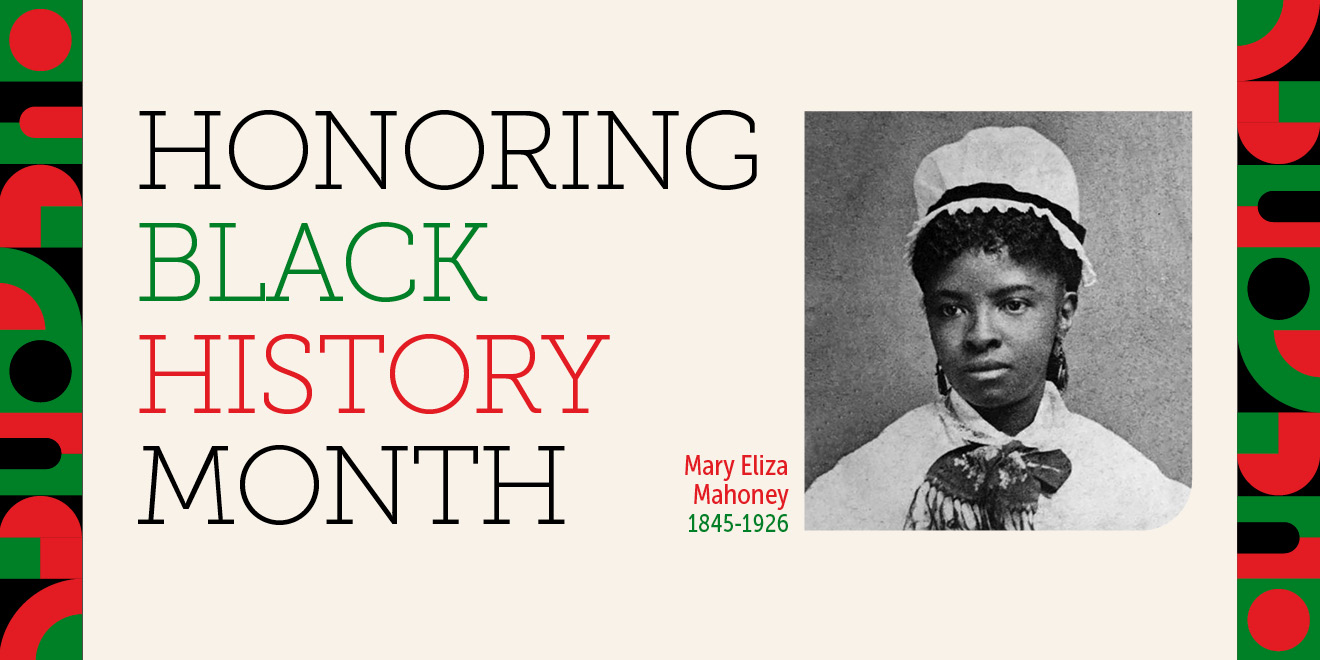
During Black History Month we are sharing a series on black medical innovators who changed America.
Mary Eliza Mahoney (1845-1926) Mary was the first licensed Black nurse in the United States, breaking significant barriers in healthcare. She continually sought opportunities for professional advancement despite significant racial and gender barriers.
Born in Boston in 1845 to freed slaves, Mary began working at the New England Hospital for Women and Children as a teenager. For 15 years she served in a variety of roles including cook, janitor, and unofficial nursing assistant.
In 1878, at the age of 33, Mahoney was admitted to the hospital’s professional graduate school for nursing with a cohort of 42 students. The training was intensive and rigorous, with only four of the cohort completing the program. In 1879, Mary became the first Black woman to graduate from a formal nursing program in the United States and obtain a professional nursing license. Her achievement was a landmark moment for Black women in healthcare, representing years of hard work and overcoming substantial prejudices that dominated professional medical education during that era.
After graduating, Mary worked as a private care nurse and developed a positive reputation for professionalism, compassionate care, and exceptional skills. She was highly sought after by wealthy families who valued her expertise and reliability. Throughout her career, she demonstrated that Black nurses could provide superior medical care, challenging prevailing racist narratives about Black professional competence.
Recognizing the need for professional support and advancement for Black nurses, Mary co-founded the National Association of Colored Graduate Nurses (NACGN) in 1908. This organization was critical in fighting racial discrimination within the nursing profession and creating supportive networks for Black nursing professionals.
Her activism extended beyond healthcare, as she was also a passionate suffragist who advocated for women’s voting rights. After the 19th Amendment was ratified in August 1920, Mary was among the first women who registered to vote in Boston.
After battling breast cancer, Mary died in 1926 at age 80. She is buried in Woodlawn Cemetery in Everett, Massachusetts.